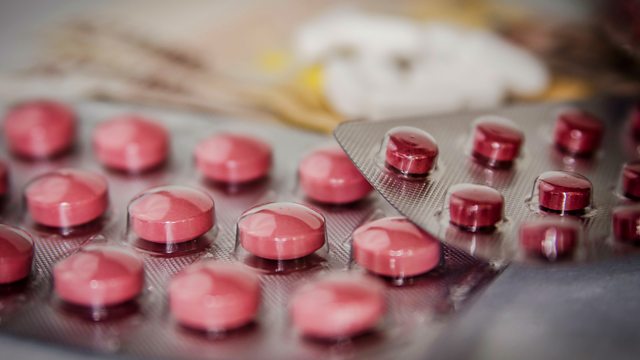
Pharmaceutical Waste
From Adam Walton finds out how we can reduce and dispose of pharmaceutical waste
Over the last fifty years the pharmaceutical industry has transformed our world. Because of antibiotics, anti-depressants, painkillers, statins and many other drugs, we can treat illness, prevent deaths and improve the quality of people’s lives. As an industry, pharmaceuticals are worth over a trillion dollars a year.
But alongside the medical and financial benefits there’s an environmental cost. Many drugs are wasted. They’re just thrown in the bin or flushed down the loo and end up in our river systems. And even the pharmaceuticals which go through our bodies are still active when they leave us and head off into the sewage system.
So how do we deal with pharmaceutical waste and protect the environment? In this week’s Science Café Adam Walton looks at strategies to deal with unused medicines. He asks how we ensure that drugs aren’t over-prescribed and what we can do to prevent them getting into our rivers.
Adam talks to Dr. Adam Mackridge, from Betsi Cadwaladr University Health Board, about the role of community pharmacies in reducing over-ordering and waste of prescription medicines and we visit Hughes' Pharmacy in Mold to see how they're tackling the issue.
Dr. Ruth Godfrey and Dr. Rachel Townsend from Swansea University Medical School join Adam to talk about a new method they've developed for the detection of common drugs like paracetamol, ibuprofen and aspirin as wastewater pollutants. And Professor Barbara Kasprzyk-Hordern from the Department of Chemistry at Bath University reveals other techniques for tackling the problem - from social prescribing to using wetlands to 'mop up' pharmaceuticals.

